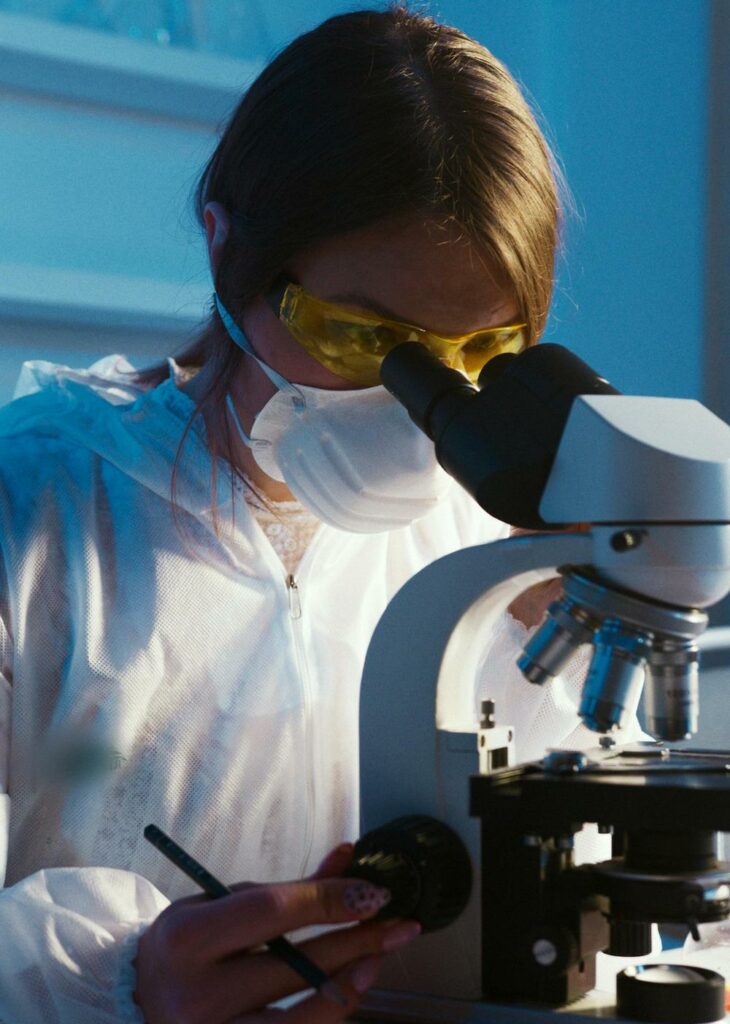Dropping Out of University to Pursue Medicine

University is often seen as the standard route to a career, but what if the course you are on feels wrong? What if you realise you should have applied for medicine instead?
Dropping out of university to pursue a medical degree is not an easy decision, but sometimes, leaving is the better choice to start working toward your real goal. Taking this step faster allows you to focus entirely on your future in medicine without further delays.
Your mind is probably swirling with questions about the preparation required for the admission process, the financial commitments involved, and more. The good news is that many universities offer accessible entry routes and affordable options, lightening the load and with the right support, your journey would be much smoother.
In this blog, we will explore if leaving university to pursue medicine is the right choice and will break down the practical steps and alternative options to help you achieve your dream of becoming a med student.
The key takeaways of this blog include:
- Dropping out to pursue a medical degree can be a strategic decision that saves you time, money, effort & stress.
- UK medical school rejections are a leading cause of signing up for an alternative degree.
- There are several alternative pathways with a high likelihood of success to help you become a doctor after dropping out.
- Already studying in a university setting can give you a major advantage when pursing a medical degree.
- Medlink Students can help you make the switch easily through the Student Success Programme.
Table of Contents
- 1 Why Do Students End Up in Alternative Degrees?
- 2 Is Dropping Out to Pursue Medicine the Right Decision for You?
- 3 Common Concerns about Applying to Medical University
- 4 What Are the Top Options for Studying Medicine After Dropping Out?
- 5 How to Turn Dropping Out Into an Advantage
- 6 How Medlink Students Can Help You Make the Switch
- 7 Why This Matters to You
- 8 Frequently Asked Questions
- 8.1 Is dropping out of university a good idea?
- 8.2 When are there better options than dropping out?
- 8.3 What challenges do I face when applying to UK medical schools?
- 8.4 What alternatives are there to studying medicine in the UK or other Western countries?
- 8.5 What is a foundation year, and how does it help?
- 8.6 What is graduate entry into medical school?
Why Do Students End Up in Alternative Degrees?
Many aspiring doctors find themselves enrolled in alternative degrees due to common misconceptions and external pressures, most commonly:
- Rejection from Medical Schools (especially in the UK). With strict quotas and fierce competition, many students apply multiple times but still don’t secure a place. Then, they sign up for an alternative degree in hopes of transitioning to medicine later.
- Misinformation & pressure. Schools often suggest that degrees like Biomedical Science or Pharmacy will lead to medicine later, but in reality, this pathway rarely guarantees success, as only about 10-20% of graduates get into graduate medicine in the UK.
- Not realising there are better alternatives. Not getting into a UK medical school is by no means the end of your journey. There are many exceptional universities in Europe and the Caribbean that provide high-quality medical education in English.
If you find yourself in a similar position, then this is the perfect blog to help you make an informed decision about your future.
Is Dropping Out to Pursue Medicine the Right Decision for You?
Before deciding to drop out of uni to study medicine, it’s crucial to evaluate your motivation and long-term goals. Ask yourself why you want to become a doctor. You might even explore the stories of other students who have made this decision.
If you are certain that a career in healthcare is your calling, then leaving university and applying to medical school right away could be a wiser move than waiting to complete your current degree and pursue a medical career later.
Save Time and Financial Resources
One of the major advantages of dropping out is the substantial time and financial resources you can save. Completing a degree requires years of commitment and significant financial investment. Tuition fees, living expenses, and other costs quickly add up, only to leave you in a position where your degree doesn’t serve your ambition to pursue medicine.
Leaving university, in this case, is the only way to redirect your time and resources toward earning a medical degree. Starting medical school sooner means you’ll progress more quickly toward graduation, residency, and, ultimately, a rewarding career as a doctor.


Focus on What Truly Matters to You


You’d feel much better dedicating your attention and resources to what you sincerely care about. Studying something that doesn’t align with your ambition can drain your energy and enthusiasm, making it challenging to stay committed.
Once you focus on medicine, your efforts will reignite your drive and turn the demands of education into a fulfilling and rewarding experience.
Exclusions: When Completing Your Degree Might be the Better Option
The only time when finalising your current studies is an option is if you are pursuing a science-related degree such as biomedical science, nursing, or pharmacy and are in the final years of your programme.
Completing your degree would then allow you to transition into medical school through graduate entry, which is typically 4 years. This way you can save time by skipping the early years of a traditional 6-year programme and streamlining your medical education.
However, if you’re still early on in your degree, does it make sense to spend 3-4 years instead of starting your educational journey right away? By the time you’ve graduated, your peers will already be halfway through their medical degrees. In a sense, dropping out early can actually help you graduate faster.
Common Concerns about Applying to Medical University
Dropping out of uni to start fresh in medicine is a bold step, so it’s perfectly natural to have some concerns along the way. However, with the right knowledge and expert guidance, you can overcome your concerns, turning your ambition into a clear and achievable plan.
Let’s address some common challenges students face when applying to medical school:
What Obstacles May I Face When Applying for a UK Medical University?
The UK medical school application process is extremely demanding and competitive, especially for students transitioning from a different field to pursue medicine later in their academic journey.
Meeting Academic Requirements
One of the 1st challenges is meeting the strict academic requirements. UK medical schools typically expect applicants to have very strong A-level grades (at least AAA, but preferably A*AA), particularly in subjects like Biology and Chemistry. If you come from a non-science background, you might need to complete science-related qualifications before applying.
In addition to academic credentials, standardised entrance exams like UCAT, BMAT, or GAMSAT are a critical part of the application process, which adds even more pressure and preparation time.
Competitive Application Process


Securing a place in a UK medical school is highly competitive, with thousands of students applying for a very limited number of spots. The reality is that, on average, more students are rejected than accepted to study medicine in the UK.
Not getting admitted means you’d have to wait at least an entire year before reapplying – a delay that can be frustrating and demotivating. It’s crucial to weigh up whether this would be the best investment of your time and effort.
Lengthy Preparation and Waiting Periods
Once you’ve dropped out, the application process for medical universities in the UK is complex and will take time. Students often spend months preparing for entrance exams and compiling application materials. This is followed by interviews and, at times, the long, stressful wait for the acceptance decision.
Don’t Underestimate the Financial Costs
After dropping out, applying to UK medical schools can come with financial challenges that should not be overlooked. Expenses include fees for entrance exams as well as the cost of preparatory courses and UCAS applications. If your application is delayed, living expenses may also become a concern while waiting for the next academic intake.
In short, applying to a UK medical university is not impossible, but it’s far from easy. The application process in the USA, Germany, and other Western countries is similarly challenging.
The good news? There are alternative pathways that can help you achieve your ambition of becoming a doctor, offering a smoother and more straightforward route.
What Are the Top Options for Studying Medicine After Dropping Out?
Before taking the 1st step of dropping out to pursue medicine, you should be certain about what your best options are. Studying medicine abroad, for example, offers promising alternatives and an enriching student experience.
Why Consider Medical Schools in Europe or the Caribbean
Medical universities in some European countries and the Caribbean offer many advantages, including flexible entry requirements, internationally recognised programmes, affordable tuition fees, and more.
Here are some of the top options available to students who want to have a guaranteed pathway to becoming a successful doctor after dropping out:
Study Medicine in Europe


One of the most appealing regions for aspiring medical students is Europe. Countries like Bulgaria, Georgia, the Czech Republic, and Poland offer high-quality education in English with comprehensive clinical training and affordable tuition fees. The medical programmes here are accredited and internationally recognised, which means that graduates can practice medicine in the UK, the EU, and beyond.
Though medical studies remain demanding in Europe, the wide availability of seats makes getting accepted far more achievable, giving you a chance for a fresh start in a vibrant, supportive, and affordable region.
The best part is that some universities don’t require entrance exams at all - you only need good grades from high school and proof of English proficiency. If that sounds good to you, you can find some of the best universities in Europe without entrance exams in our blog.
Study Medicine in the Caribbean


Another worthy alternative to consider is the Caribbean. The top Caribbean universities have gained a strong reputation for their excellent medical education, with globally recognised programmes that meet the standards of the General Medical Council (GMC) in the UK and other international accrediting bodies.
Similarly, a great advantage for students from the US is that Caribbean medical universities provide the necessary preparation for the US Medical Licensing Exam (USMLE), which opens the door to practising medicine in the US.
In addition, Caribbean medical universities also have partnerships with global medical establishments, offering extensive research opportunities, residency placements, and hands-on clinical experience essential for future medical careers.
Lastly, many destinations in the Caribbean have affordable tuition and living expenses making pursuing a medical degree more financially viable compared to traditional options in the UK. Add the warm climate, outdoor activities, and vibrant festivals as a refreshing balance to demanding studies, and you might just find your student paradise.
To find out more about what Caribbean medical education has to offer, take a look at the top Caribbean universities on our page. Alternatively, you can save time on research and get a FREE consultation with a Medlink Students academic advisor to explore your options.
Foundation Year or Graduate Entry Options for Medical Studies
Foundation year or graduate entry programmes play the role of a bridge to help students from diverse academic backgrounds transition into medical school. Depending on your academic history, each option provides a tailored route to fast-track or thoroughly prepare for your medical education.
Foundation Year to Build a Strong Medical Foundation
- An excellent solution if you don’t have the necessary A-levels or need extra preparation before beginning medical studies
- Particularly applicable to those who have dropped out and want to meet medical school entry requirements
- Ensures students enter medical school better equipped academically, familiar with faculty members, and less overwhelmed by language or foundational science requirements
- Covers essential subjects, including Biology, Chemistry, and Physics, along with English for health sciences
- Lasts between two to nine months
Graduate Entry Medicine – Fast-Track Your Studies
- Suitable if you already hold a degree in a science-related field such as biomedical science, nursing, or pharmacy
- Recognises your prior achievements, allowing you to skip the initial years of a six-year med programme
- Entrance exams are often not required
If you’ve dropped out without a science degree, the foundation year might be your best route. For those with a relevant degree, graduate entry provides a faster, more focused path. Both options are valuable opportunities to pursue your medical ambitions efficiently.
How to Turn Dropping Out Into an Advantage
Dropping out is not a failure. On the contrary, it can be a valuable learning experience. Having already been part of a university environment, you are familiar with academic demands, time management, and study strategies – advantages that 1st-time applicants often need time to develop.
This prior experience can smooth your transition back to education and give you an edge in adapting to medical school’s challenges. With the right mindset and preparation, you can thrive in medical education and build a rewarding career.
Additionally, dropping out in favour of medicine is a powerful factor you can use to showcase your commitment to becoming a physician in university interviews and motivational letters.
How Medlink Students Can Help You Make the Switch
Dropping out to pursue medicine is a strategic choice that would let you focus on your passion for healthcare without unnecessary obstacles.
While the medical entry requirements in the UK and other Western countries can be demanding, alternatives in Europe or the Caribbean provide high-quality, affordable routes with flexible entry points. With the right support and mindset, getting admitted to a medical university can turn into a rewarding student experience, making you a successful healthcare professional.
If you’ve realised that switching to medicine is the best choice for you, Medlink Students is here to make the process as smooth as possible.
We have developed the Student Success Programme to help students like you get accepted into an exceptional medical school and graduate at the top of your class with the support of a dedicated team of doctors, current students, and certified academic advisors.
With us by your side, you can take advantage of:
- Guaranteed medical school placement. We’ll help you secure a spot at the perfect university according to your goals and ambitions.
- Step-by-step support. From applications to relocation and even beyond graduation, we will be there to guide you through every stage.
- No entrance exams. Many medical schools in Europe and the Caribbean only check for grades and English proficiency.
- Affordable top-tier university options start from just £4,500 per year.
Ready to kick-start your educational journey? Sign up for a free consultation with our expert academic advisors.
Why This Matters to You
Deciding to pursue medicine after changing your academic path is a big decision that will shape your future. However, this journey isn’t just about getting into medical school; it’s about ensuring your hard work leads to a fulfilling and successful career as a doctor.
Every step in this process matters, from selecting an accredited medical school that meets international standards to understanding the financial commitments involved. Making informed decisions now can prevent future challenges, such as unexpected costs or an educational experience that doesn't align with your goals.
The medical school you choose will influence your training, career opportunities, and personal growth. Knowing what to expect and how to prepare gives you an edge in an already highly competitive field. Making an informed decision now will let you take control of your future, avoid setbacks and confidently pursue your passion for medicine.
Your dream of becoming a doctor is achievable, even if there is a slight delay. With the right steps now, you’ll be well on your way to becoming a successful doctor.
Frequently Asked Questions
Is dropping out of university a good idea?
If your dream is to become a doctor, dropping out of studies that don’t contribute to your ambition can save you both time and financial resources, allowing you to fully focus on pursuing a medical career.
When are there better options than dropping out?
If you’re in the final years of a science-related degree, completing it may help you transition into medical school directly through graduate entry.
What challenges do I face when applying to UK medical schools?
Applying to a UK medical university is quite challenging, primarily due to the strict academic requirements, the competitive application process, and the lengthy preparation time required for exams like UCAT or BMAT.
What alternatives are there to studying medicine in the UK or other Western countries?
You can consider studying medicine in Europe or the Caribbean, where medical schools offer flexible entry requirements, internationally recognised degrees, and more affordable tuition.
What is a foundation year, and how does it help?
A foundation year helps students who don’t meet traditional entry requirements by providing essential medical knowledge before they start their degree.
What is graduate entry into medical school?
Graduate entry is a fast-track route into medical school for students who already hold a degree in a relevant field, allowing them to skip the initial years of a standard medical programme.
Leave a Reply


About Medlink Students
Leading international recruitment company for medical students in Europe. British Council Certified Agents. 10+ years of experience and more than 10,000 students advised.








